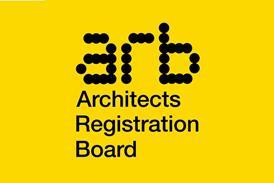Firms should not wait for reforms to the testing regime to come into force - they should already be changing their ways to meet higher expectations of competence and ethics
The construction products industry faces significant changes in the coming months and years ahead. The Grenfell Inquiry highlighted shortcomings in the sector with regards to building safety and regulatory changes are now on the horizon to make those shortcomings a thing of the past. The Building Safety Act is perhaps the most significant of these. Although primary legislation came in last year, the secondary legislation expected soon will be significant for manufacturers.

The changes do not end there. DLUHC’s new Recovery Strategy Unit (run by former Special Forces Commando Colonel Robert Graham Cundy) is already pursuing product manufacturers who have failed to contribute to fixing building safety issues. The Grenfell Inquiry Report (expected at the end of the year) will no doubt bring increased media scrutiny and potential criminal prosecutions. The industry also must also get to grips with the new Building Safety Regulator (part of HSE) and the Construction Products Regulator (part of the OPSS).
> Also read: Government review into product testing proposes sweeping reforms to regulatory regime
> Decay, delay and deregulation: what we have learnt from the Grenfell Inquiry
The CPA also welcomes the recently published Independent Review of the Construction Products Testing Regime from Paul Morrell and Anneliese Day KC. It is required reading for policy-makers and industry leaders alike, coming at a critical time not only for the future of the UK product testing and certification sector, but for the wider culture and practices of UK construction as well.
This is a seminal moment and with the Grenfell tragedy still weighing on our collective conscious, we have a duty to meet these changes with acceptance rather than resistance
This is a seminal moment and with the Grenfell tragedy still weighing on our collective conscious, we have a duty to meet these changes with acceptance rather than resistance. Our responsibility now is to recapture the confidence and respect that the industry lost on that fateful night. It is up to industry to take on board what it needs to do. The changes will affect everyone no matter what part of the industry they are in.
Of course, there will at first be a significant focus on high-risk buildings; however, the changes in liability, responsibility, accountability and transparency are for everyone whether in manufacturing, design, procurement, construction or maintaining any structure across the built environment.
Liability will become a central concern with the Building Safety Act giving the secretary of state at the Department for Levelling Up, Housing & Communities power to issue cost contribution orders against construction product companies (or other “economic operators” - manufacturers, authorised representatives, importers and distributors). They will be forced to contribute towards the cost of remediation works when the use of their products has caused or contributed to dwellings being unfit for habitation.
The building regulator and product regulator will be taking a different stance. They will say: “Demonstrate you are doing the right thing and that it is compliant, safe and ethical, or we will take action”. They will have surveillance ability and enforcement powers to support their position.
Competence, evidence, clarity, openness and ethics are the watchwords
From this point on, the focus has to be action; both reactive and proactive. Reactive to make sure the new regulatory environment is understood with everything it brings. Proactive to embrace change and ensure everyone in our organisations can play their part. Competence, evidence, clarity, openness and ethics are the watchwords.
One way to meet these expectations is to use the Code for Construction Product Information (for manufacturers) and where applicable the Building a Safer Future Charter (particularly for clients and contractors). Verification against the Code for Construction Product Information (CCPI) and embedding ethical leadership and culture at the heart of the industry is of vital importance and is something manufacturers can act on now.
The CCPI responds directly to Dame Judith Hackitt’s Independent Review of Building Regulations and Fire Safety to help make product information clear, accurate, up-to-date, accessible and unambiguous. It will mark a step change for the industry by driving higher standards in construction product information management systems and assessing ethical leadership and culture standards. It also makes strong business sense as well, providing third-party verification and increased assurance to clients, customers and insurers.
The CCPI scheme is now up and running and ready to help manufacturers start their journey towards verification. What sets the CCPI apart is that it is not only about ensuring a robust product information management system. It goes further than that, aiming to drive change in the industry by focusing on the culture, leadership and ethics of a manufacturing organisation. It does this through implementation of an anonymous staff leadership and culture survey.
Product information that has been reviewed under the CCPI terms will carry the CCPI verification mark, which will be valid for up to two years. It will provide reassurance to all parts of the supply chain of the reliability and honesty of the product information. The OPSS has praised the CCPI, and I believe its high uptake among industry will drive the change we need to avoid the worst of the regulatory and reputationally damaging forces that might be waiting on the horizon.
It was great to see solid support for the Code for Construction Product Information in the recent Independent Review of the Construction Products Testing Regime from Paul Morrell and Anneliese Day.
So, what is my message to manufacturers? Act now and do not be left behind. It is time to start our collective journey towards higher standards in product information management systems as well as ethical leadership and culture. Manufacturers are too important to our built environment to miss out on the future.
Peter Caplehorn is chief executive of the Construction Products Association
















No comments yet